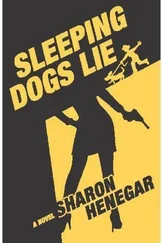He had gone back inside and told Puccio that it was only Lempert, but Puccio had not been reassured; he had been puzzled. He had said in Italian, “He can’t be doing that for the police department. The only reason he might is if he was pretty sure the Butcher’s Boy was coming to get Paul. I told him to keep his eyes open like everybody else, but he’s too lazy to sit out there all night without getting paid.” He thought about it for a moment. “You know, he’s just stupid enough to have seen something in the police reports and kept it to himself so he could collect on the contract. Do me a favor. Go out and find a place to keep an eye on him, where he can’t see you. And take Ficcio with you.”
Salcone had responded to that with a raised eyebrow, and Puccio had read it instantly. “I know. But you might need somebody to come in and get me, and he won’t attract attention.” Then they could hear the movie starting, and it was time to move.
Salcone had led Ficcio out the back of the theater and up the alley to Salcone’s car. He had thought about the situation for a moment and then gone around to the trunk and pulled out the two MAC-10’s. He had shown the kid how to flip off the safety and put it on automatic, then handed him the gun and told him to keep it on the floor by his feet, where he wouldn’t make a mistake and take off the roof of the car with it.
Then they had driven around the block and come up the street looking for a vantage point from which they could see whatever it was that Lempert was watching for. But at that moment, the van was pulling out of its parking space and moving up the street. Salcone had followed it nearly a mile, to this store. It wasn’t until the van’s doors opened that he had seen that Lempert hadn’t been alone in the van. The truth was much more startling than anything Puccio had imagined. Lempert had hired himself out to the Butcher’s Boy. He was driving the getaway car.
Salcone had forced himself to take a moment to think about what he had seen. It made sense for the Butcher’s Boy to hire Lempert. Lempert knew enough about Paul Cambria to know where he would be tonight, and how to get close enough for a shot, and probably how to get past the police afterward. Salcone didn’t have time to send the Ficcio kid back in the car to the theater for help, and anyway, that would leave Salcone stranded here if Lempert and the Butcher’s Boy decided to leave. He would have to kill the two of them right here.
He had brought Ficcio up to the back door of the copying store and told him the plan. What he had neglected to tell the boy was that when Ficcio stepped through the back door and opened up with the MAC-10, it didn’t much matter what he hit. Salcone would be at the front of the building. By the time Salcone stepped in, either the Butcher’s Boy would be dead, or he would be busy killing Ficcio. But then, without warning, Ficcio reached out and pushed on the door. If they had seen it, they hadn’t opened fire. That meant that either they hadn’t seen it, or they were on their way out the front door. Either way, Salcone couldn’t afford the luxury of going around to the front. He had to move.
“All right, kid,” said Salcone. “Go through the door fast as you can, stop and open fire.”
“You mean now?”
“Now.”
To Lempert, everything seemed to happen at once. First, he was surprised to see that the Butcher’s Boy hadn’t waited and made him go ahead. He pushed the front door open, and then he seemed to disappear for a second. Lempert whirled to look over his shoulder just as the back door swung inward hard, so that it banged against the wall. He recognized the two guys. One was Salcone, the guy Puccio always talked to in Italian because they came up together in some shithole in Pittsburgh that didn’t even sound like it was in America; and the other was a kid they called something that sounded like Fish, who wasn’t much older than the one who must have ducked behind the counter. They both held little assault weapons that looked sort of like Ingrams, although he had never seen an Ingram from this angle. In fact, from here the angle looked a little off.
Lempert’s body jerked, partly in surprise because even the body feels noise somewhere in the diaphragm when two .45-caliber automatic weapons roar in an enclosed space, and partly because the .45-caliber bullets were punching through his chest, arms, neck and head.
Wolf crouched beside the door with his back to the bricks and covered his face while the machine guns blew the glass out of the front window beside his head. He knew they would be approaching the front of the building fast, to get a shot at him as he sprinted down the street.
The first one was the older man, who walked directly to the empty window frame and leaned out to see which way the prey had run. Wolf looked up at the underside of his chin and fired the revolver through it. When the man toppled forward, he still held his little MAC-10. As Wolf snatched it out of his grip, he realized he had seen the man somewhere in the old days. He leaned inside the ruined window and opened fire on the second man, who was approximately where anyone would be, squatting low beside the front door that he didn’t have the guts to open. Then Wolf dropped the MAC-10 on the body and looked at the face again. He remembered where he had seen the man; he was the one who used to keep the security people busy while Puccio stole suits off the loading docks of clothing stores in Pittsburgh. In the old days he’d had more meat on him, and looked like a longshoreman or a trucker. Now he had flecks of gray in his hair, and wore photogray glasses—sort of distinguished, like a professor. Seeing him here like this was not a pleasure. Little Norman must have failed.
As he walked to the van he kept his pace leisurely. He got into the driver’s seat, picked up the keys, started the van and, as he pulled away from the curb, glanced into the copying store. From this height he could see that the kid at the cash register still was not ready to peek up over the counter. It was hard to blame him.
Wolf could feel his heart beating faster than he liked it to. What the hell was wrong with these people? They must have seen Lempert and followed the van, and then the older one had seen Wolf. Coming through the back door together like that was the tactic of losers; it was the way addicts robbed grocery stores. Then somebody had panicked or made a mistake and opened up on Lempert. Or was it even a mistake? It was as if the whole world had lost all sense of the way things were done and the way men behaved, so you couldn’t even figure out what they thought they were trying to accomplish.
The words “the slaughter of the innocents” came into Wolfs mind. That had been Eddie’s term for it. Presumably it was something that had happened in the Bible, but he had never looked it up. He remembered Eddie arguing with a man who was trying to collect on the same contract. It was one of the few times Eddie had ever let the boy work with colleagues, because he considered them to be competitors by nature and acquaintances only through some regrettable coincidence of geography. But this time Eddie and the boy had found a major prize. A man named Frank Basset had run a small-time burglary ring based on restaurant reservations. He had placed confederates as waiters and busboys in the best establishments, and each night they would go over the lists to see who would be at the restaurants, leaving their houses empty. If it were particularly tempting, Basset would hit the house. If a woman came in wearing diamonds, for instance, they would know that her house was worth the trouble. Eddie had sniffed as soon as he had heard this. “Well, for Christ’s sake, if she’s wearing them, then they’re not going to be in the house, are they?” But that had not been the only flaw. Wolf couldn’t remember the details, except that there had been a child and a baby-sitter in one house, and that the owner had been a lawyer with friends who had connections. Eddie had heard about the large, open contract at a time when he had been feeling vulnerable.
Читать дальше












